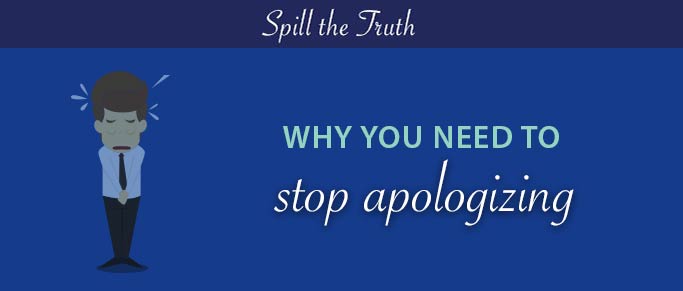I often have the participants in my professional workshops write a draft of their elevator speech, sales pitch or other standard communication. Then I have them share it with the group.
It’s very common for someone to begin with some kind of apology such as, “I didn’t have much time to work on this” or “Mine isn’t very good.” They often insert more disclaimers about the quality of their work as they go. “I’m sorry, I’m terrible at this.” Sometimes, this self-denigration goes viral and the whole group is apologizing. Often, the intention seems to be to lower expectations so, if someone fails, it won’t be a big deal.
When this happens, I stop the group and draw attention to the self-denigration. I insist that everyone try again. Only this time, rather than shooting themselves down, I asked them to at least remain neutral about their efforts. I also give them starter phrases to try, including
- “I have a draft to share.”
- “I’d be delighted to go next.”
- “I’m excited to hear everyone’s feedback on my content.”
I get it. It’s tough to promote yourself, especially when you’re not feeling super-confident. However this negativity, whether it’s rooted in humility or low self-esteem, needs to stop. Self-denigration — more than any other communication misstep — can degrade your reputation.
So this year, at the very least, don’t put yourself down. Being neutral is fine. Even better: Say something good about yourself and your contributions.
Besides, if you’re not on your own side, why should anybody else be?







